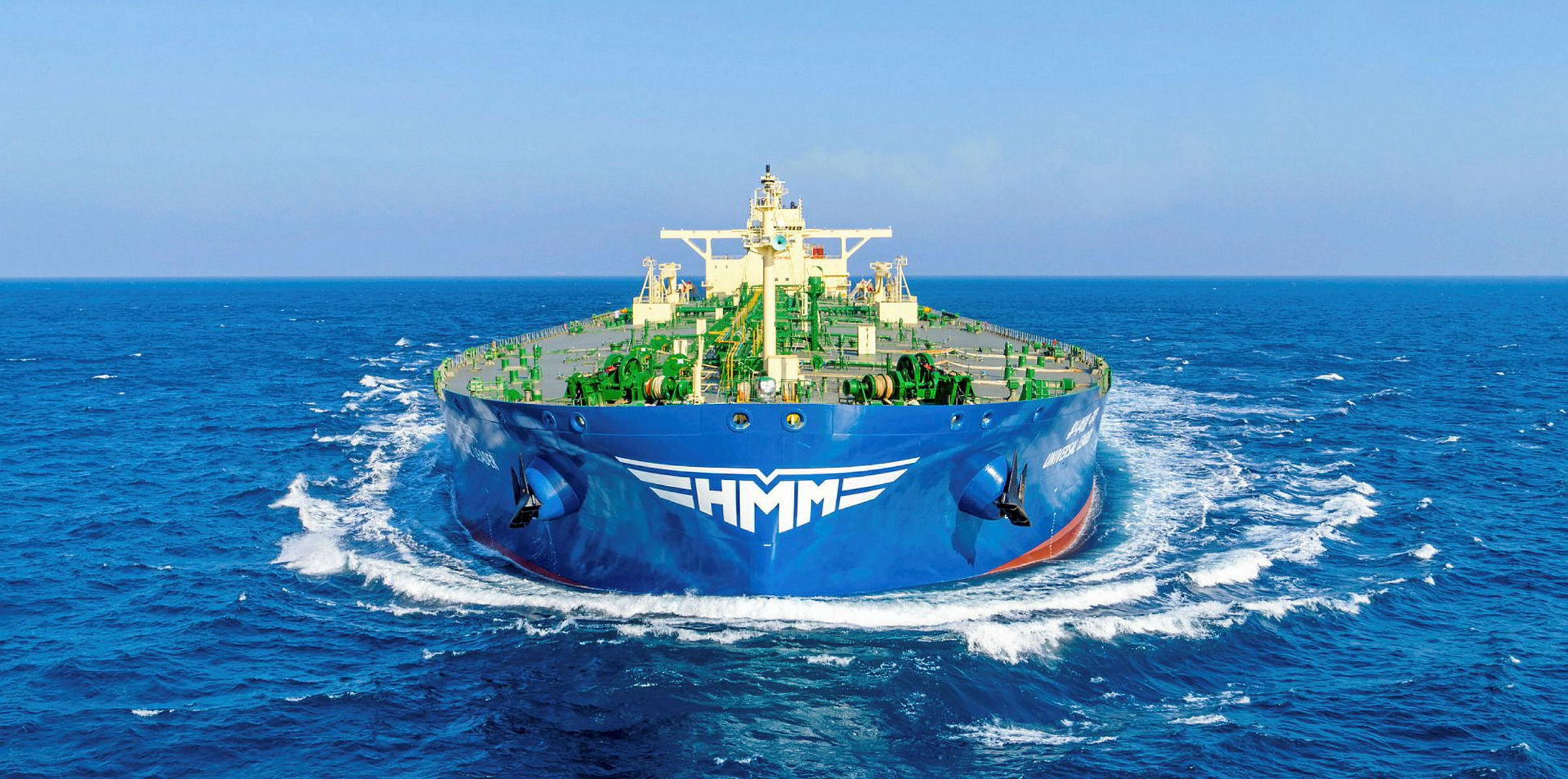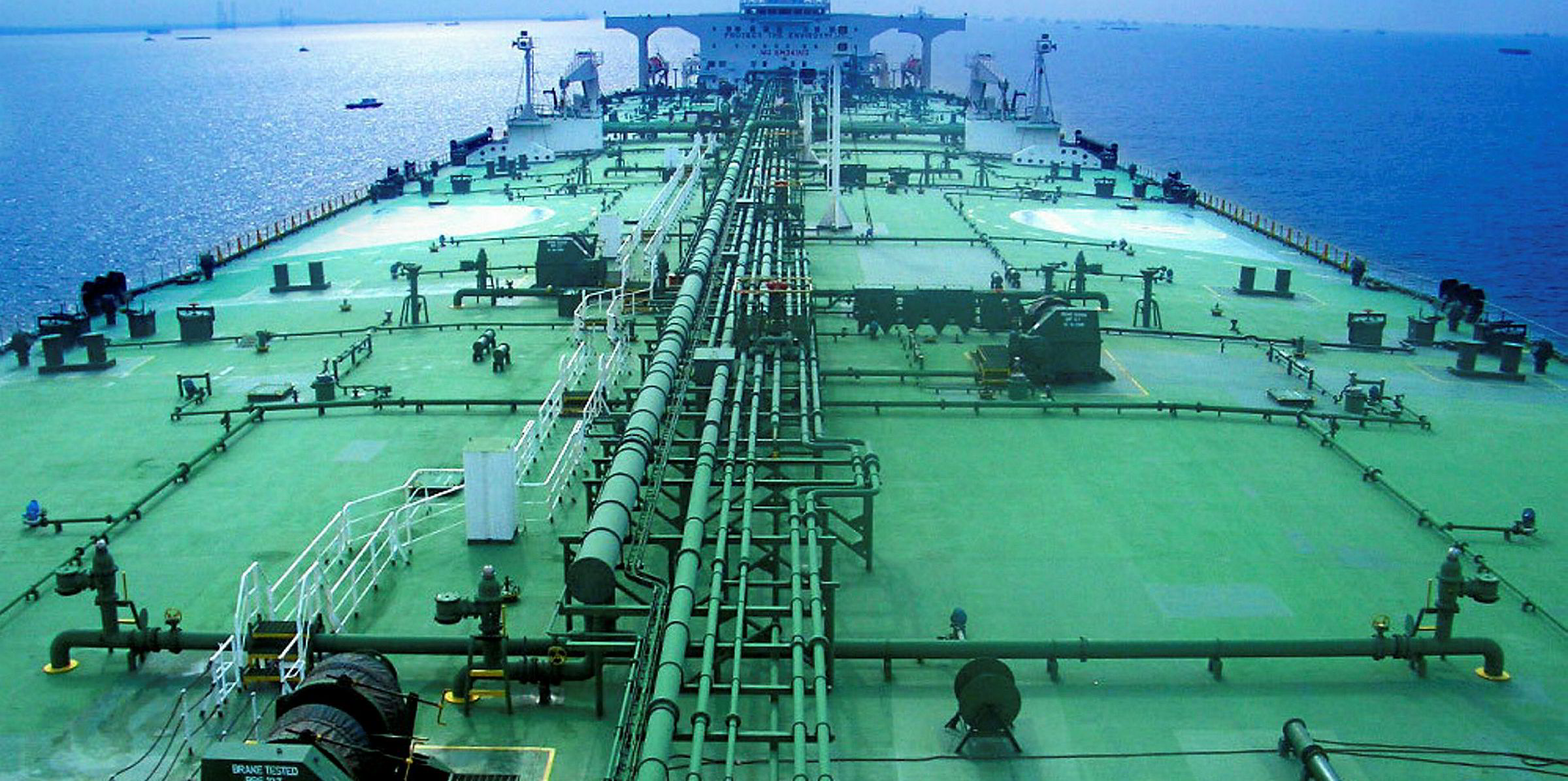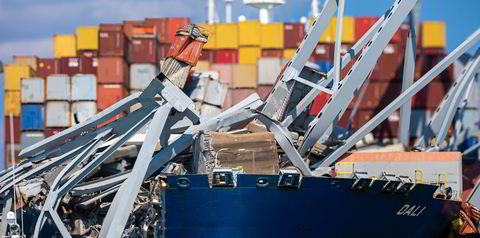The return of 26 previously sanctioned Cosco VLCCs will chop $10,000 per day from spot rates.
This is according to calculations made by Clarksons Platou Securities, which said the reintroduction of the vessels at the end of January will reduce utilisation by 1.7%.
“This implies a reduction of $20,000 per day when VLCC earnings were $60,000 per day [close to 90% utilisation] but not more than $10,000 when rates were $35,000 on the day of announcement,” Clarksons Platou said.
The Cosco Shipping Tanker (Dalian) ships were sanctioned by the US over alleged trading with Iran on 26 September. Sanctions were lifted on 31 January.
Clarksons Platou said the 26 VLCCs and other tankers with a combined 10m dwt will be back in active trades, with all but three vessels currently being repositioned.
Fearnley Securities said that with limited buying interest, charterers are currently largely left with fixed-contract liftings, and with the Cosco vessels back, nine Middle East Gulf-to-China cargoes were under contracts of affreightment on Wednesday last week.
This bumped the Gulf count to 114 fixtures this month and, with February being a short month, it added: “We’re at the last furlong.”
Levels bottoming out?
Rates have levelled off at $10,000 per day for standard tankers burning compliant fuel, and closer to $40,000 per day for eco-ships fitted with scrubbers.
“Overall, we don’t see much downside from here,” Fearnleys said. “Moreover, with increasing oil surplus we have seen a boost in floating storage interest.”
Clarksons Platou said waiting time and congestion has reduced due to a mild winter and lower volumes, but could increase again after China locked down Wuhan.
Analyst Frode Morkedal said the coronavirus — named Covid-19 by the World Health Organization — is “a curveball, not a game changer” for the sector.
"Covid-19 and the demand destruction is temporary, and we should see a recovery during 2020 [second quarter 2020]," he said.
According to the US Energy Information Administration (EIA), Opec cuts from Saudi Arabia are already happening, which is part of the reason the market is weak.
The EIA is forecasting a strong rebound in oil production during 2020 as extraordinary Opec cuts are reined in by May; and Brazil and the US raise oil production and exports.
Scrubber retrofits initially set for the first quarter of 2020 have been postponed due to Chinese yards shutting as a result of the virus. Therefore, close to 2% of the fleet could exit in the second quarter instead — at the same time trade flows are expected to start recovering, Clarksons Platou said.
Contango is a positive
"Contango in the oil curve is a change of dynamics which is positive; with prices expected to increase through the journey, charterers have the incentive to run ships slower and build inventories," it added.
Floating storage could add support during the second three months as well, tightening the market further.
Clarksons Platou is predicting a return to $50,000-per-day levels for VLCCs.
And it said stock valuations are highly attractive, with the risk/reward equation compelling.
"Current spot earnings are still above cash break-even, hence no financial distress is foreseen," the company said.
"Investors that buy today are likely to receive healthy dividends for 4Q19 [fourth quarter 2019] and 1Q20 [first quarter 2020]."







